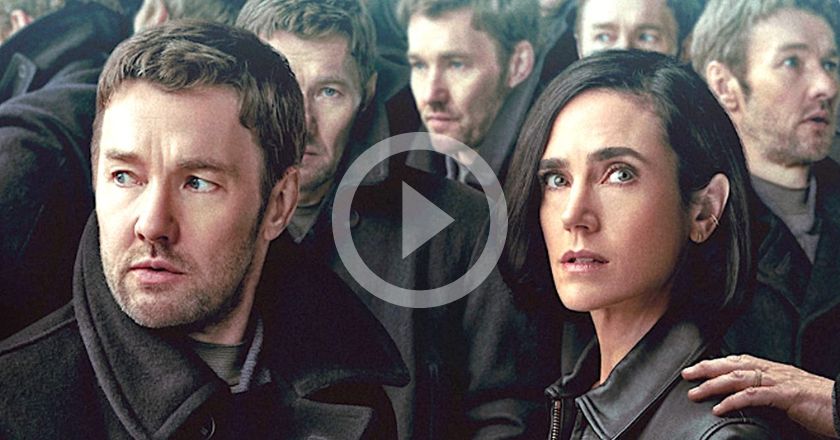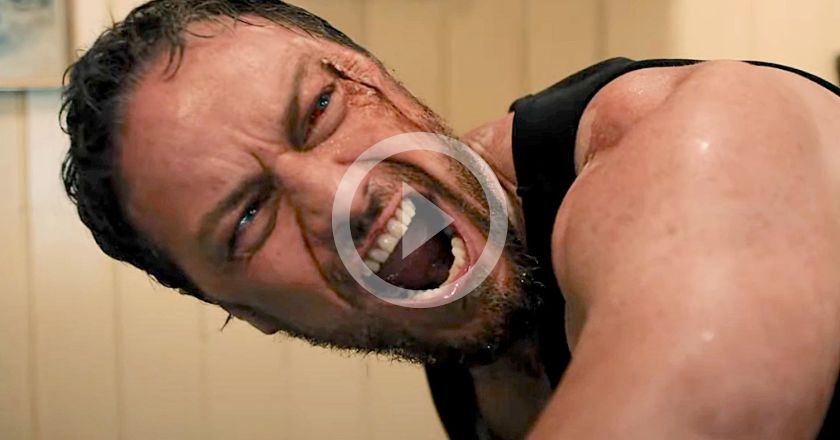Written by Guillermo Troncoso.

When a film is based on a much-loved novel, comparisons between the two are inevitable. Audiences will either crucify filmmakers for failing to match readers’ imaginations, or embrace them for their interpretations. The Book Thief, based on the best-selling novel by Mark Zusak, manages to almost land in the latter.
It’s 1938. We meet young Liesel travelling on a train to meet with foster parents. Her younger brother dies in the arms of her emotionally defeated mother. After a quick funeral, in which Liesel steals The Gravedigger’s Handbook, she is sent to foster parents Hans (Geoffrey Rush) and Rosa (Emily Watson) Hubermann. Rudy, a young boy who lives next door, immediately has a crush on her. Liesel can’t read, so the charming and well-meaning Hans begins to teach her. Her new strong-willed mother, while being as tough as nails, also shows affection. As Liesel grows to be comfortable with her new father and mother, WWII raises its ugly head. Enter Max, a young Jewish man who the family must hide in their basement. The story unfolds with the interspersed narration of none other than Death himself.
Any film with a child as its main protagonist depends highly on the child’s performance, which can often be left wanting. Luckily for The Book Thief, young Sophie Nélisse gives a truly wonderful performance as Liesel, a brave girl who struggles to understand not only the reasons for why her personal world descended into shambles, but why the world around her is crumbling, figuratively and literally. Nélisse’s wide eyes beautifully emote the fears and the fascination that this young girl has in the midst of Hitler’s regime.

Geoffrey Rush, Emily Watson and Ben Schnetzer, as Max, also provide the film with some impressive performances. Rush and Watson deserve kudos for underplaying their two roles, considering how easily these two personas could be caricatured. The relationships that Rush and Schnetzer’s characters develop with young Liesel is what the film ultimately banks on, and in that regard, the film succeeds.
Zusak’s novel was a highly imaginative take on the Holocaust that was filled with a wry sense of humour and a child-like sense of wonder. The film, while delivering honourable attempts, doesn’t quite reach the same heights. Director Brian Percival has a background in television, most notably for helming episodes of Downton Abbey, and this shows through the film’s structure and inconsistent tone. The film’s episodic structure unravels a bit like a series-summary. It’s as though we are too obviously being shown the key moments of a large period of time in this girl’s life. On its own, this isn’t a terrible factor. If they had only spent some more time allowing for ruminations and patient character building, the film’s emotional punchlines would have hit home all the harder.
While The Book Thief consistently – and obviously – goes for the heart whenever it can, it does hit it on occasion. As the film’s heartbreaking finale comes around, the emotional strength held within the film is unleashed. Possibly due more to the characters than the filmmaking, there’s an indisputable sense of earnestness to the proceedings that nudges its way to the heart. Even though Death’s narration serves better on paper, it adds an interesting element to place this apart from the many heartbreaking holocaust-films that have graced our screens.
The film dips into the schmaltz more often than needed and the overall structure detracts from the emotional beats, but the film nevertheless takes a hold of you. Great performances, a realistic sense of time and place, not to mention John Williams’ wonderful score, culminates in a sweet and touching drama that families are able to watch together.
THE REEL SCORE: 7/10
– G.T.







